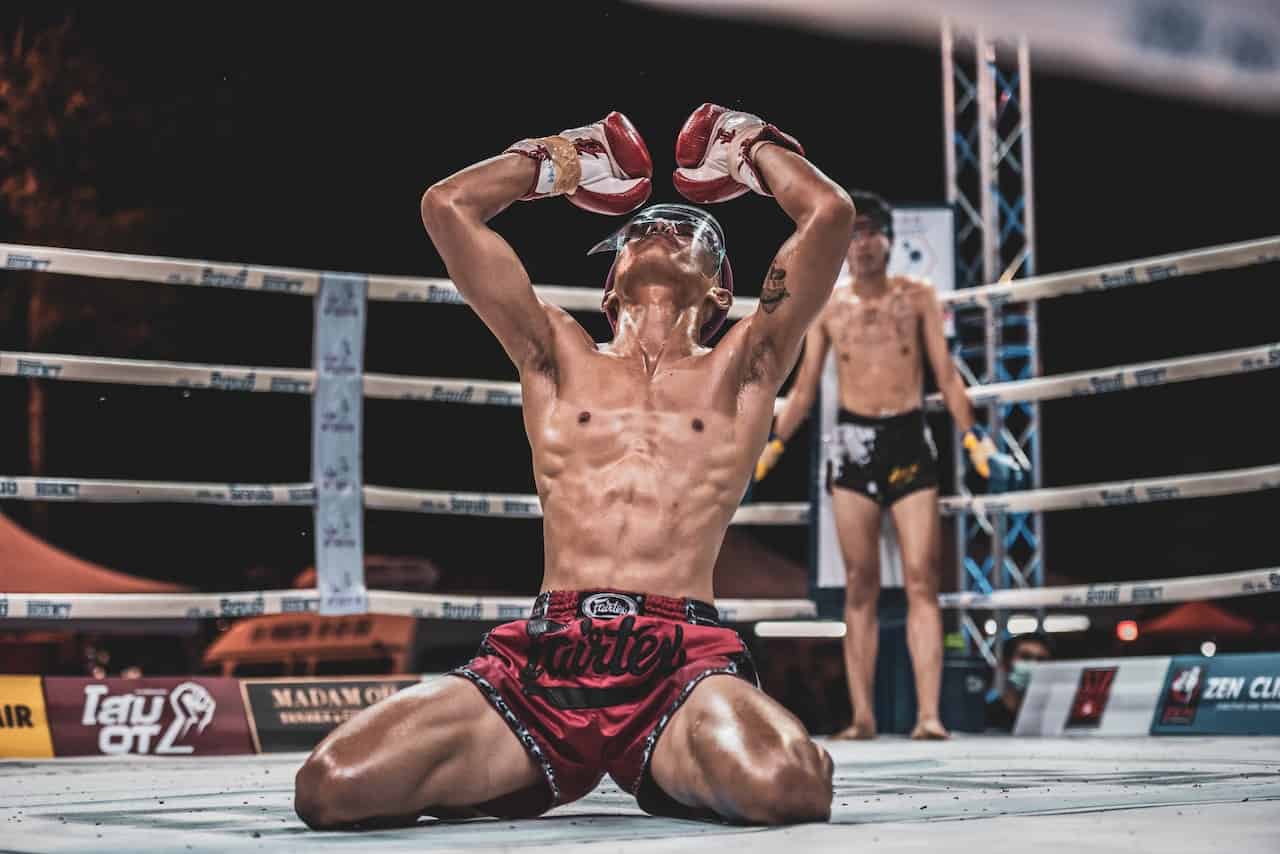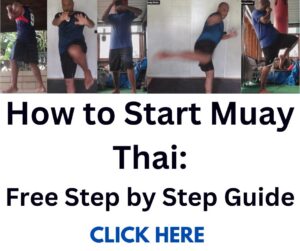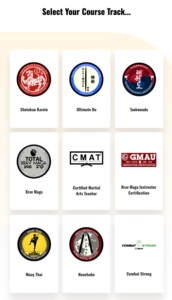What should a muay thai weekly training schedule look like?
How do the professionals in Thailand train every week?
How can I get the most out my a muay thai weekly training schedule while still working a normal job and with family committments?
We look at all each of the questions above to help you develop your own muay thai weekly training schedule so you can keep improving week upon week consistently, no matter what you current lifestyle circumstance are.
What should a muay thai weekly training schedule look like?
This will differ from person to person depending on each individuals current work, family commitments or even school committments.
However there is a general baseline when it comes to muay thai and martial arts improvement in technical skill and that is; you should aim for 3 sessions per week to keep improving in your technical skill.
Training twice per week is the base minimum and sufficient to preserve and maintain your currenlt level of technical skill in muay thai.
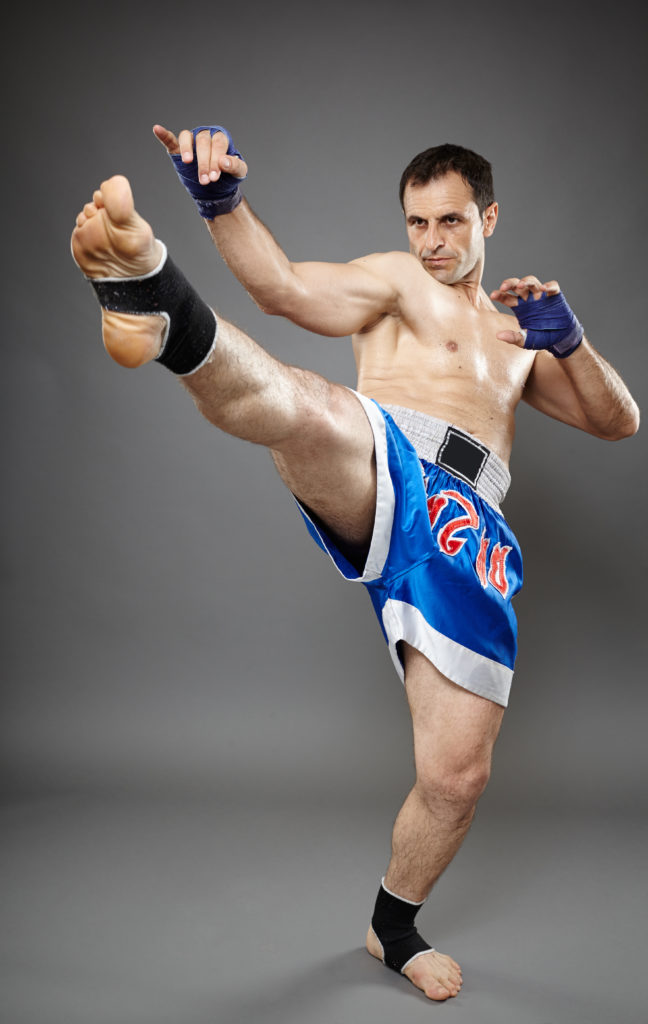
However in order to keep improving consistently week upon week, a bare minimum of training muay thai three times per week is required.
So, whether you work a 9 to 5, study at University or even school then you should aim for three sessions per week in order to keep improving in your muay thai technical skill.
There may be times when things get hectic in life and you just cant make it to the gym three times per week.
And in these cases, getting at least two sessions per week should be sufficient to maintain your technical skill level.
Solo Heavy Bag Training still Counts!
If you cant get to the gym three times per week, then the heavy bag will become your best training partner.
There is no reason you cant get in solid training with just a heavy bag.
And heavy bag training on your own is one of the best ways to learn and improve in muay thai over time, especially if you cannot get to the gym as much as you would like to.
It certainly takes a lot of self discipline (which is what martial arts is all about), but with the right program you can even improve in leaps and bounds from home on the heavy bag.
And when you do make it back to the gym you can surprise your instructors and training partners with your speed, strength, conditioning and of course technical skill that you have developed through solo heavy bag training in muay thai.
How do the Pros train every week?
Professional fighters in Thailand train twice per day, Monday through to Saturday and take Sunday off.
This is the muay thai weekly training schedule they follow for many, many months and years.
And this begins from a very young age.
Of course for those of school age, they are still required to attend school and get their homework done.
But self discipline is learnt from a young age and a commitment to muay thai training a part of every young nak muays (muay thai student) life.
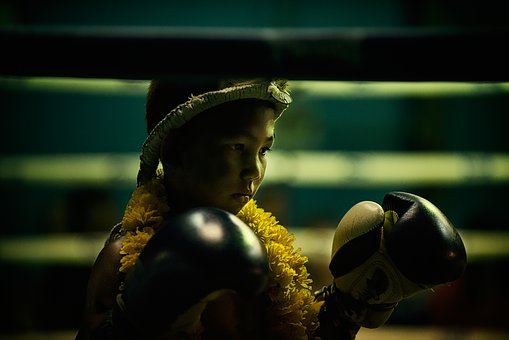
Those who are a bit older and with less committments to schooling are usually those with the most promise, and whom dedicate themselves to becoming professional fighters and earning a living through fighting.
It should also be noted that professional fighters usually recover between their AM and PM training sessions which usually means having a meal, relaxing and sleeping to recover.
A professional Muay Thai training session in Thailand typically follows a structured and intense format. And they usually follow a format similar to that shown below.
This is done twice per day, 6 days per week.
- Warm-up: The session usually starts with a warm-up to prepare the body for the physical demands of training. This may include jogging, skipping rope, shadowboxing, or performing dynamic stretching exercises.
- Technique drills: The trainers will focus on teaching and refining specific Muay Thai techniques such as punches, kicks, knees, elbows, clinching, and defensive moves. They will break down each technique and provide individual attention to ensure proper form and technique.
- Pad work: Pad work is a crucial part of Muay Thai training. During this phase, you’ll pair up with a partner or trainer who will hold Thai pads or focus mitts. You’ll practice various combinations of strikes, working on precision, speed, power, and timing. Pad work helps develop your offensive and defensive skills while simulating realistic combat scenarios.
- Bag work: Bag work allows you to practice your strikes on heavy bags, which helps develop power, speed, and conditioning. You’ll work on different combinations, kicks, knees, and elbows, unleashing your strikes on the bag with intensity. Bag work also enhances endurance and allows you to practice techniques with resistance.
- Clinching and sparring: Depending on your skill level and experience, the session may include clinching and sparring. Clinching involves close-range techniques, including knee strikes, sweeps, and off-balancing techniques. Controlled sparring sessions provide an opportunity to practice your skills in a more realistic and dynamic environment.
- Conditioning and strength training: Muay Thai fighters require exceptional physical conditioning. Training sessions may include various conditioning exercises such as bodyweight exercises, running, skipping rope, circuit training, and strength training exercises specific to Muay Thai.
How to get the most out of muay thai training as a ‘normal’ person?
It should be noted that professional gyms in Thailand house and feed their fighters and even cover school fees.
So students in these type of gyms really have nothing to worry about other than training muay thai.
There entire focus is on muay thai and making a living through fighting. So they have the time and means to focus on resting and even sleeping in between their AM and PM training sessions.
But as a ‘normal’ person, job, family, school and other life commitments are usually priority for most people.
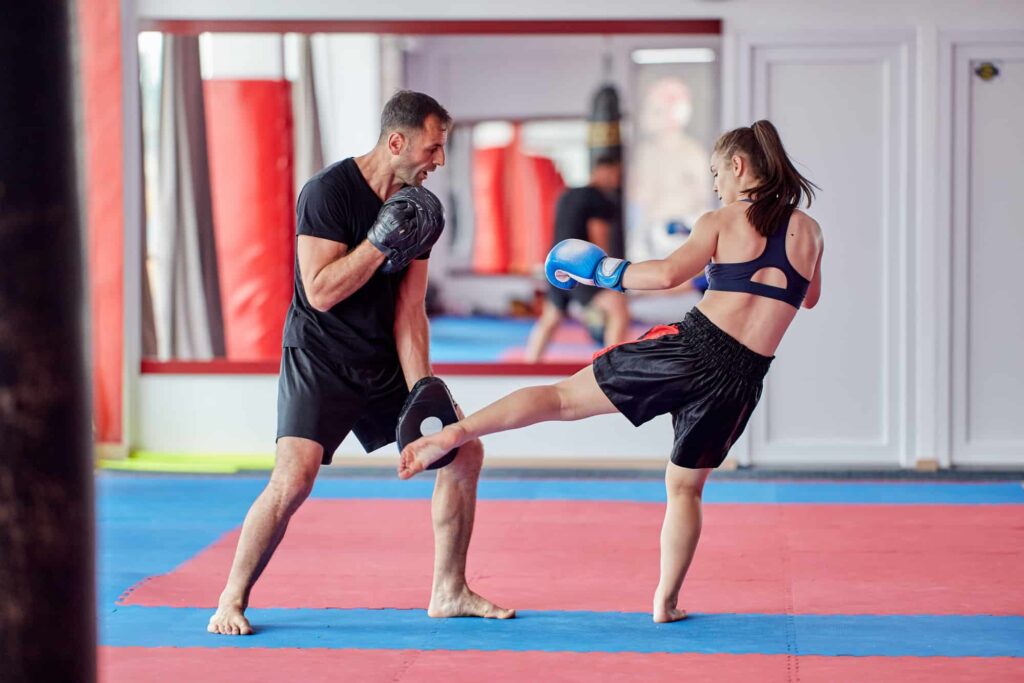
But many people who work ‘normal’ jobs in the Western world have found the time to train and work and also through their commitment have made it to become great fighters and even champions.
It all comes down to your own planning and self discipline.
This can mean training early in the morning, going to work or school and training again in the evening.
So training muay thai as a ‘normal’ person can be very tough, especially if competing is your goal.
But we will go over important tips so that anyone can get the most out of muay thai training no matter their life circumstances.
#1 Nutrition and recovery must be on point
As a normal person working a normal job or a student committed to school, you wont have the luxury of relaxing and sleeping in between training sessions as the pros do.
So nutrition and recovery must be on point.
Eat nutritious foods and cut out junk as much as possible and develop good sleeping habits and even taking naps when possible in between sessions.
#2 Solo Training and Private Lessons are Important
With a busy life you cant always get to the gym and attend group training classes, which is the most common method of improving in muay thai that even the pros use in Thailand.
But you can focus on your own solo training with just a simple home gym set up with nothing more than a heavy bag and gloves.
To keep improving in skill you can also take advantage of one to one training through private lessons with instructors.
This can be more costly but you can schedule sessions that more suit your timetable around the times you are busy with work and school.
#3 Strength & Conditioning can be your Advantage
Even if you can’t get to the gym, attend private training sessions or train on the heavy bag as much as you would like, you can still get in your strength and conditioning sessions on your own, pretty much anywhere and anyime.
Getting in extra road work or body weight training exercises can be done pretty much anywhere with minimum equipment.
And even if you miss muay thai training you should make strength and conditioning your life long commitment and indeed this could something you build you muay thai game on.
Having the confidence that you are better conditioned and stronger than your opponent can be critical in a fight.

